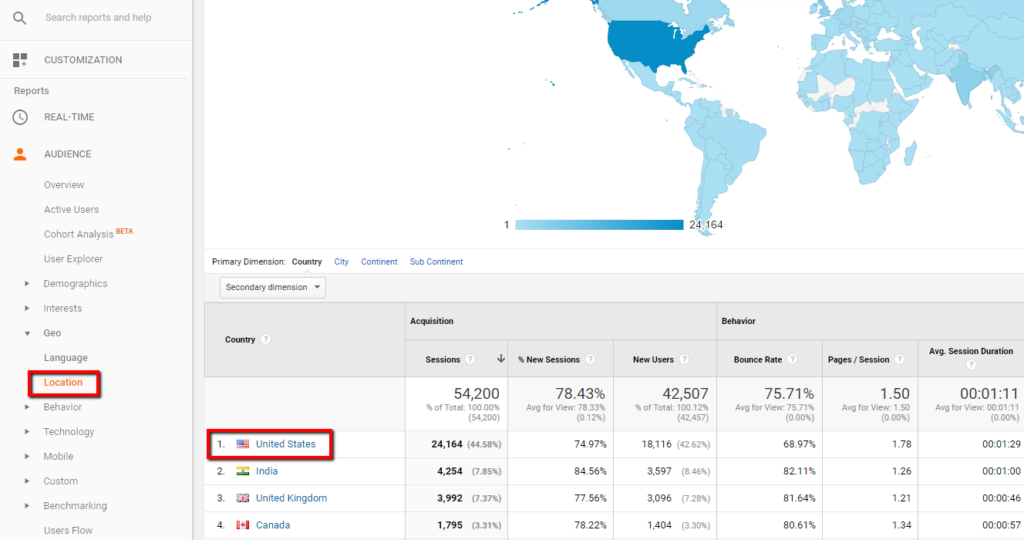Enhance Your Information Analysis Utilizing Second Dimension in Google Analytics
Exploring the abilities of additional measurements in Google Analytics opens up a realm of possibilities for refining information analysis. By layering additional dimensions onto primary information sets, a more detailed narrative emerges, dropping light on individual communications and efficiency signs.
Understanding Secondary Dimensions
In the world of data evaluation, a vital aspect to grasp is the idea of secondary measurements and their relevance in extracting deeper insights from Google Analytics records. Second measurements in Google Analytics describe additional parameters that can be added to the main measurement, enabling an extra detailed evaluation of information. By integrating second dimensions, analysts can section and filter data to reveal patterns, fads, and correlations that could not appear when checking out the information overall. These secondary dimensions can provide context and a much more thorough understanding of individual behavior, web traffic resources, and various other vital metrics tracked by Google Analytics.

Advantages of Utilizing Additional Dimensions
When examining information in Google Analytics, the application of secondary dimensions offers invaluable understandings into customer behavior and efficiency metrics. By including an additional measurement to your main data, you can dive much deeper right into the attributes of your internet site visitors and their interactions.
In addition, secondary measurements boost the context of your primary information, offering a more thorough sight of user involvement and efficiency metrics. Generally, the usage of second dimensions in Google Analytics can dramatically boost the deepness and quality of your information analysis, leading to even more enlightened decision-making and improved end results.
Just How to Add Secondary Dimensions
By including additional dimensions in Google Analytics, customers can gain much deeper understandings into their data analysis process, enabling even more detailed analysis of user behavior and efficiency metrics. Adding secondary measurements is a straightforward procedure that can considerably improve the depth of evaluation. To add a second measurement in Google Analytics, start by navigating to the report you wish to analyze. When in the report, locate the "Additional measurement" tab above the information table. Click it to expose a dropdown food selection with numerous choices such as Habits, Modern Technology, and Custom-made Capacities. Select the dimension you wish to add, such as 'Source/Medium' or 'Device Classification'. This secondary measurement will certainly then be put on your existing data, giving extra context and enabling for a much more in-depth evaluation of individual interactions. By using second measurements effectively, individuals can uncover valuable understandings that may have or else been neglected, resulting in notified decision-making and boosted efficiency approaches.
Analyzing Data With Additional Dimensions
Using secondary dimensions in information evaluation offers an extra extensive understanding of customer habits and efficiency metrics. By including a secondary measurement to your main information set in Google Analytics, you can delve much deeper into the characteristics of your website site visitors and their communications. For example, incorporating the main measurement of 'source/medium' with the second dimension of 'touchdown page' can disclose which certain pages are drawing in web traffic from various sources, helping you maximize these web pages for better engagement.

Fundamentally, assessing data with second dimensions equips you to gain valuable understandings into customer behavior, recognize fads, and make notified decisions to improve the efficiency of your electronic properties.
Finest Practices for Additional Measurements
In information evaluation, integrating second measurements Web Site properly can dramatically improve the use this link depth of understandings stemmed from metrics and customer actions patterns. When using second measurements in Google Analytics or any other logical tool, it is vital to comply with finest methods to make sure the accuracy and importance of the information analysis.
One trick ideal practice is to thoroughly choose second measurements that enhance the primary measurement being evaluated. Selecting second measurements that give extra context or additional division can offer a more comprehensive understanding of the data. It is likewise important to stay clear of overcomplicating the analysis by consisting of a lot of additional measurements, which might lead to complication or dilution of insights.
Moreover, it is advisable to explore different mixes of second and primary dimensions to discover brand-new connections and patterns. Routinely refining the selection and examining of secondary dimensions based upon the particular objectives of the evaluation can cause more actionable understandings. By adhering to these ideal techniques, information analysts can utilize secondary measurements successfully to improve the overall information evaluation process and decision-making abilities.

Verdict
To conclude, integrating additional measurements in Google Analytics is important for a thorough data analysis technique. By leveraging secondary dimensions alongside main ones, analysts and marketing experts can reveal beneficial insights and relationships that can educate decision-making and optimize digital marketing methods. Comprehending exactly how to successfully make use of secondary dimensions and complying with finest practices browse around here will enable specialists to extract purposeful data and improve their total performance metrics.
Additional measurements in Google Analytics refer to extra specifications that can be added to the main measurement, allowing for a more in-depth evaluation of data. By including additional dimensions, experts can section and filter information to reveal patterns, fads, and correlations that could not be obvious when looking at the information as a whole. Combining the main dimension of 'source/medium' with the additional dimension of 'landing page' can disclose which certain pages are attracting web traffic from different resources, assisting you enhance these pages for better interaction.
One secret best method is to carefully select secondary dimensions that enhance the primary dimension being assessed. By complying with these ideal methods, information experts can leverage secondary measurements properly to enhance the general information evaluation process and decision-making capacities.